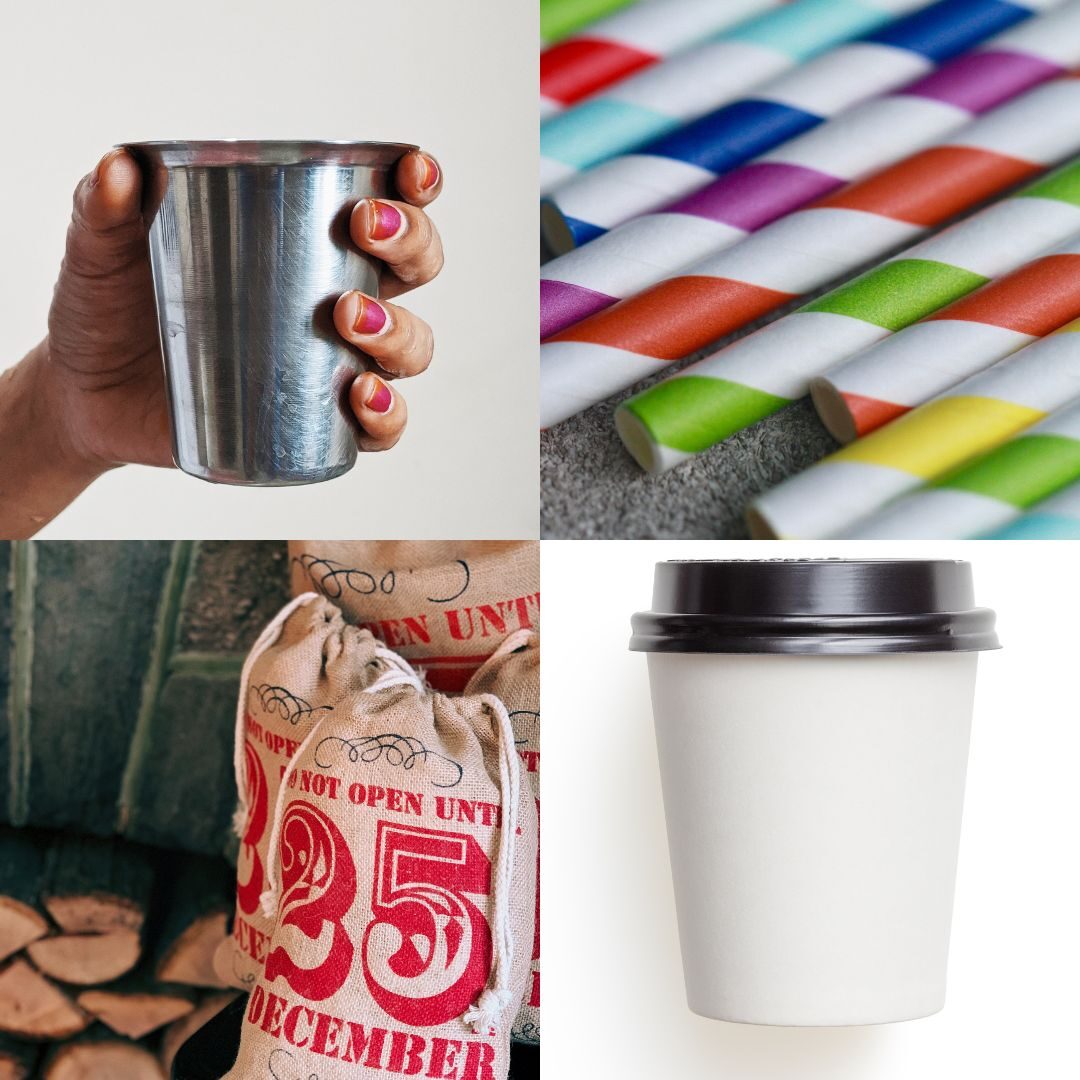
According to Statista, the production of plastic across India was around 1.5 million metric tonnes in 2021. The demand for plastic products emerged due to the diversification of food, chemical and other industries.
As the name suggests, SUPs are single-use plastics that do not go through the recycling process. It includes a variety of everyday products like cups, plates, straws, earbuds, knives, packaging films, etc.
Following the ban, the Delhi Pollution Control Committee (DPCC) suggested alternatives for these prohibited SUP items. The alternatives are paper cups and straws, bamboo plates, spoons, forks along with the use of ceramic cups, stainless steel glasses and biodegradable kulhads.
When the ban came into action, Basant Lal, who owns a small juice shop near ITO metro station, stocked the new bio-cups. He has been in the business for 36 years and predominantly used plastic cups for his everyday business.
“There was a loss at the beginning because the plastic cups were cheap; I used to buy 50 cups for Rs 40 and now I have to pay double the price”, he says.
Asked if he prefers plastic cups over paper cups, he says, “I prefer what is good for the environment because after drinking in plastic cups people litter the waste and the blame is on the shopkeeper.”
Earlier, Lal used glass cups but switched to plastic cups on the demands of his customers. He is in full support of the government’s decision and will soon be purchasing bamboo products to run his business.
“Paper straws get soggy after 2-4 sips, and it’s difficult to drink the rest of the drink”, says Ashwin Kumar who works as a marketing executive. Although he believes that steel straws could be an option, he says that carrying them will be a hassle.
“It is all a sham, everything will be back to normal in a month’s time and people will start to use these plastic products again”, comments the owner of a food stall. He uses thin plastic pouches to pour the gravies. “You can’t pour these gravies in paper cups or bags, there is no option other than this”, he adds.
As plastic products – that were in high demand before the ban – do not remain an option, most agro-food companies are switching to paper straws with small tetra packs. Earlier, the government declined their plea to extend the ban due to the unavailability of paper straw production in India.
However, AS Mehta, president of the Indian Paper Manufacturers Association (IPMA), says that the impression in the market that no Indian paper mill can manufacture the required amount of paper to make paper straws is wrong.
As the alternatives are available in the market, manufacturers had to stock it up and discard the already purchased SUP’s.
“We were given 10 days’ notice to discard the purchased plastic products, the remaining stocks were either recycled or incinerated”, says Ashok, a manufacturer.
Another distributor in Amar Colony, Lajpath says that he cleared off his stocks one month before the ban to avoid any difficult situation.
Another incident that caught the attention of Patriot was that of a vegetable vendor. He was reminding each customer coming into his cart to bring cloth bags to carry the vegetables as the plastic bag may result in a hefty fine.
With alternatives being made available all around, environmentalists and other nature preservers raise the question: Are paper products better for the environment?
As the paper cups are lined with a plastic resin coating which results in the delay of composting and recycling, another impact of these products is the emission of greenhouse gases during production.
According to the environmentalist Puneet Verma, “Disposable cups made from crop waste or garden waste is another alternative.”
If this alternative to plastic is causing the least impact on the environment, it is better to make this the preferable choice. “It’s good to stick to something which is biodegradable. This is going to do less harm to us”, he adds.
“It is said that paper production processes emit much more greenhouse gases as compared to plastic production”, he continues.
Kulhads are one of the best alternatives for plastic cups or even paper cups as they are made of clay. It is biodegradable and hygienic because of their one-time use. Long before the ban, many shops near Moolchand metro station have been using kulhads to serve tea.
The aroma is different while drinking tea in a kulhad which adds to the overall flavour. However, Verma suggests that the appropriate alternative is to use reusable traditional utensils made of clay, brass or steel. Carrying them around can be an issue but after a few usages, it can become a healthy practice.
For more stories that cover the ongoings of Delhi NCR, follow us on:
Instagram: https://www.instagram.com/thepatriot_in/
Twitter: https://twitter.com/Patriot_Delhi
Facebook: https://www.facebook.com/Thepatriotnewsindia
Delhi hosted what organisers describe as the world’s first player auction in golf, launching ‘72…
An elderly woman recalls how her six-year-old granddaughter lay bleeding after a speeding car hit…
Municipal Corporation of Delhi plans a unified policy enabling RWAs to adopt and maintain parks…
A 17-year-old boy allegedly died by suicide after jumping before a moving train at Uttam…
Delhi High Court grants bail to 26-year-old Thar driver accused of mowing down two in…
Two Rohini men arrested for fatally stabbing one person and injuring another during a robbery…